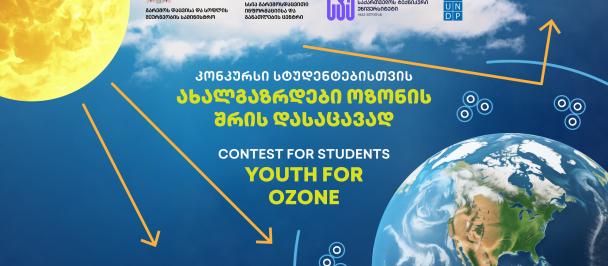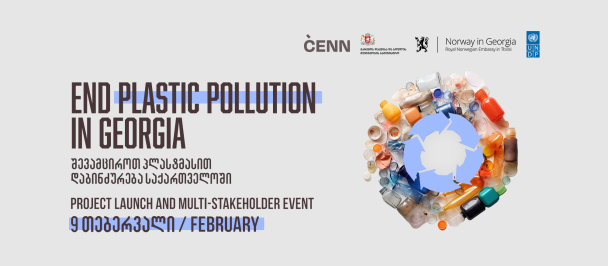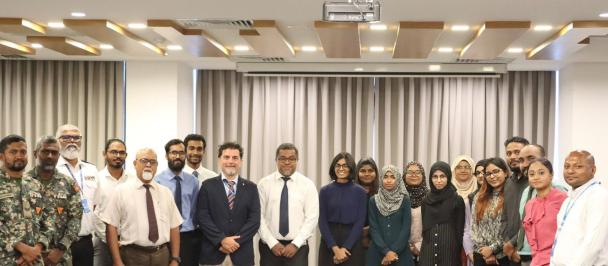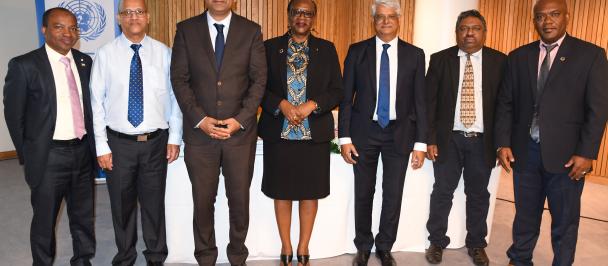By Catherine Adodoadji-Dogbe, Programme Analyst and Fatima Farouta, Head of Solutions Mapping, UNDP Ghana, on International Day of Zero Waste
Harnessing Innovation and indigenous knowledge for Zero waste
March 27, 2024

Vivian Ahiayibor, Managing Director of City Waste, one of the winners of UNDP's Waste Innovation Challenge in Ghana.
Globally there has been an increase in municipal solid waste generation. Predictions indicate that Municipal solid waste generation will grow from 2.3 billion tonnes in 2023 to 3.8 billion tonnes by 2050. The global direct cost of waste management was estimated at USD 252 billion in 2020 and the total global costs of waste (mis)management amounted to US$361 billion when considering the hidden costs of pollution, adverse health effects and climate change stemming from poor waste disposal practices.
The International Day of Zero Waste highlights the importance of strengthening waste management globally and the need to promote sustainable consumption and production patterns. The concept of Zero Waste aims to minimize waste generation, maximize recycling, and promote a circular economy where resources are used efficiently. UNDP Ghana is celebrating this day under the theme harnessing Innovation and Indigenous Knowledge for Zero waste.
Indigenous communities across the globe have traditionally employed time-tested methods that view waste as products in transition, resources that are to be re-used and given a new lease of life. In Ghana, Indigenous knowledge systems have made significant contributions to waste management through recycling and repurposing of materials. Local communities have always effectively managed waste by utilizing innovative traditional practices like composting organic food waste and transforming discarded materials into reusable items such as producing curtain ropes and building bricks from recycled plastics.
These local communities have additionally implemented regenerative agricultural practices by integrating livestock into cropping systems, to further mitigate waste. Practices such as these hold valuable lessons in the move to combat waste. To effectively harness Innovation and Indigenous Knowledge for zero waste in Ghana some steps must be taken.
Support Research and Development
Firstly, investment in research is essential to explore how indigenous knowledge can be integrated with modern waste management techniques. Research can unearth new insights and innovative solutions toward achieving zero-waste objectives. For instance, research could promote innovative methods of food packaging by utilizing biodegradable materials sourced locally, and additionally, focus on promoting composting as a sustainable approach to managing organic waste. The UNDP Ghana Accelerator Lab using Behavioural Insights (BI), and other innovative research methods attempts to understand waste-disposing behaviours and strengthen the waste management ecosystem in Ghana by training communities to focus on local knowledge and grassroots innovations, and their pivotal role in the circular economy. The Accelerator Lab has highlighted and documented grassroots solutions and connected them to city policymakers to aid them in recognizing their tangible contribution to a cleaner, more sustainable and equitable city.
Innovative Financing to support grass root innovators.
Grassroots innovators implementing innovative zero waste solutions often require financing to execute their ideas and innovations. Financing could be in the form of grants, subsidies, and technical assistance. Innovators could also engage in joint ventures as well as private and public partnerships to implement their initiatives. UNDP Ghana through its Waste Recovery Platform has provided technical and financial support to local innovators to address the waste management challenge in the country.The government could also create an enabling environment for innovation by establishing hubs and incubators focused on waste management, providing a platform for indigenous innovators to collaborate, and develop home grown solutions.
Establish Collaborative Platforms:
Collaboration and knowledge exchange are essential to harnessing Innovation and indigenous knowledge for zero waste. Platforms made up of diverse stakeholders such as Government, academia, civil society organisations, the private sector, informal waste pickers, and local communities can facilitate knowledge exchange, partnership building, and co-creation of zero waste solutions. The UNDP’s Waste Recovery platform, and the Ghana National Plastics Action Partnership (NPAP) offer spaces for bringing together multiple stakeholders to collaborate and take decisive steps toward achieving zero waste.
Recognizing the significant contributions of indigenous knowledge systems in waste management, concerted efforts must be made to support research and development, provide innovative financing mechanisms for grassroots innovators, and establish collaborative platforms for knowledge exchange and partnership building. By embracing these steps, we can work towards a future where waste is minimized, resources are utilized efficiently, and sustainable development is realized for all including advancing the achievement of the Sustainable Development Goals 11 and 12.
Recognizing the significant contributions of indigenous knowledge systems in waste management, concerted efforts must be made to support research and development, provide innovative financing mechanisms for grassroots innovators, and establish collaborative platforms. This will help build a future where waste is minimized, resources are utilized efficiently, and sustainable development is realized for all including advancing the achievement of the Sustainable Development Goals 11 and 12.

 Locations
Locations


